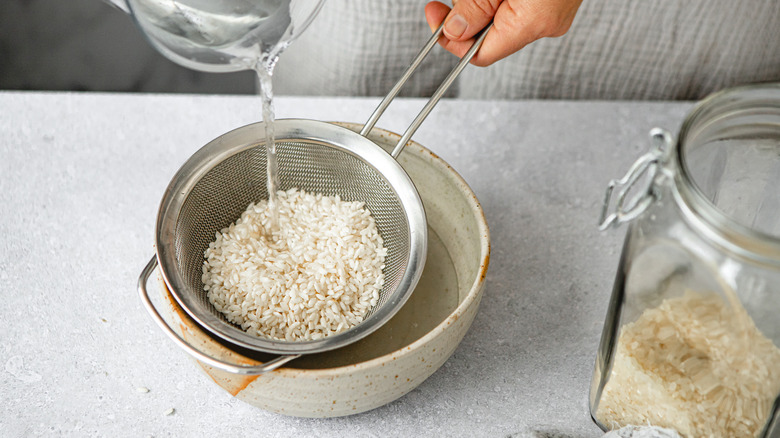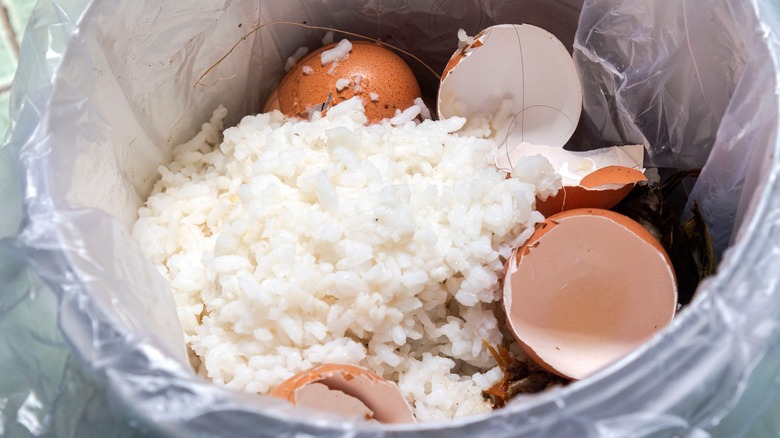Should You Be Using Rice Water In Your Garden & Lawn? Here's What Happens If You Do
In the spirit of sustainable living, we're always looking for ways to reduce, reuse, and recycle. But as much as we love Mother Earth, we also need to conserve our time and energy. One simple practice is to save your leftover rice and its by-products for your yard, benefiting both the earth and your garden. Composting rice is an affordable way to build nutrient-rich soil for your plants, while its water — which typically gets thrown out when kernels are rinsed before being cooked — is an interesting way that rice can serve as a fertilizer. The liquid also naturally repels pests from your garden because it contains phenolic acids, a natural pesticide among other functions. In addition, plain cooked rice is a leftover kitchen scrap that safely attracts birds to your yard.
While minimal research on the benefits of leftover rice water has been done, a 2022 study showed that three-day-old fermented rice water is effective as a plant fertilizer. Researchers determined that "it can enhance soil fertility and serve as a soil amendment," and it even "increased the growth of tomato, eggplant, and spinach by 22% to 43% more than the control (tap water)." This supports findings that rice water contains nitrogen, phosphorus, and potassium. "The macronutrients found in rice water will give your plants a quick nutritional boost, which is particularly helpful when they are recovering from any kind of stress. Using this by-product when you transplant or after dealing with an infestation can help your plants thrive," explains Master Gardener Tiffany Selvey, House Digest's Gardening Editor.
Tips for using rice in your garden
To maximize the benefits of rice water, you have several options for making this nutrient-rich liquid. The simplest way is to stir uncooked rice into warm water, letting it soak for 30 to 45 minutes before straining the water into a bowl. To glean more nutrients, make rice on the stovetop, but add more water than is needed. Once the rice is done, strain out the extra water to use in your yard.
Fermented rice water, which seems to offer the most nutritional value of these options, takes a little more effort and time. Start with the soaking method and then pour the water into a jar. Mix in 1 tablespoon of sugar and 4 tablespoons of milk and cover the jar loosely with a lid. Let the mixture sit for 3 to 4 days at room temperature, which will give the liquid a sour smell. Use the rice water by either misting plants with a spray bottle or drenching the soil. Selvey explains, "A foliar spray is often the fastest way for plants to absorb nutrients, but using rice water directly on the soil is also beneficial by serving a dual purpose — watering your plants while encouraging them to take up natural fertilizers."

